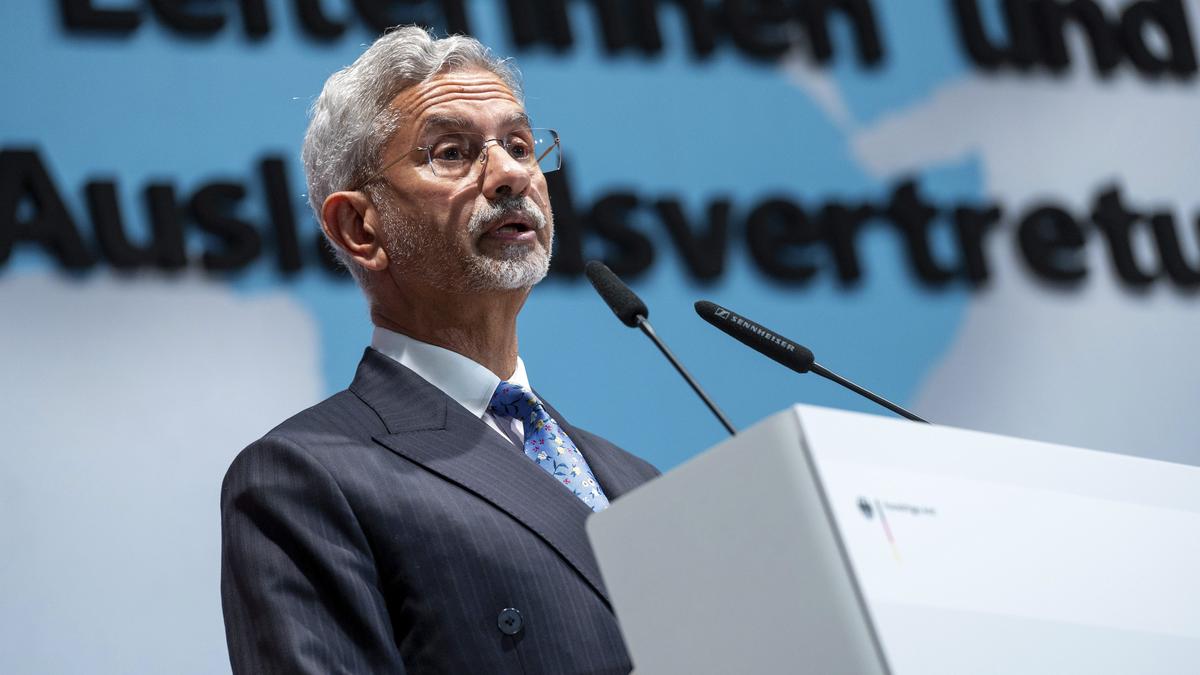India’s Approach to the Russia-Ukraine Conflict and Economic Ties

- 11 Sep 2024
India’s Four-Point Principle on the Russia-Ukraine Conflict
- Principles for Resolution: External Affairs Minister S. Jaishankar outlined India's four key principles regarding the Russia-Ukraine conflict:
- Peace as a Priority: Emphasis on the need for peace and the belief that the conflict cannot be resolved through continued warfare.
- Negotiation Requirement: Asserted that any resolution must involve Russia in the dialogue process.
- No Battlefield Solutions: Stressed that solutions cannot be achieved on the battlefield.
- Active Engagement: India is actively engaged and concerned about finding a resolution, with ongoing discussions with both Russia and Ukraine.
- Hosting Peace Conference: Jaishankar noted that while suggestions for India to host a peace conference have been made, there is no commitment from India to propose or host such a conference.
- Recent Diplomacy: Referenced Prime Minister Narendra Modi’s visits to Moscow and Kyiv and highlighted National Security Adviser Ajit Doval's current visit to Russia.
Diplomatic Discussions with Germany
- Bilateral Meeting: Jaishankar met with German Foreign Minister Annalena Baerbock in Berlin to prepare for German Chancellor Olaf Scholz’s visit to New Delhi on October 24-25.
- Topics of Discussion:
- Global Issues: Discussed the Russia-Ukraine conflict, the Gaza conflict, and coordination for the UN Summit of the Future.
- UN Security Council Expansion: India and Germany are jointly advocating for the expansion of the UN Security Council.
- Ongoing Engagement: Both ministers will reconvene later this month at the UN General Assembly.
India-Germany Relations
- Germany’s Role: Baerbock acknowledged ongoing discussions with India and other countries about their roles in peace efforts, despite differing positions on the Russia-Ukraine conflict.
- Economic and Trade Relations:
- Migration and Mobility: Plans to enhance the India-Germany migration and mobility partnership, aiming to increase the number of skilled Indian workers in Germany. Currently, 125,000 Indian nationals work and 50,000 students study in Germany.
- Military Cooperation: Discussed expanding military partnerships, including joint air force exercises and upcoming naval exercises in Goa.
- Trade and Investment: Efforts to boost annual bilateral trade to $30 billion and attract about $25 billion in investment from Germany. New Delhi will host the Asia Pacific Conference of German Business next month.
Economic Ties with China
- Business Relations: Jaishankar addressed concerns about economic ties with China amidst a four-year military stand-off and related restrictions.
- Business Sectors: India is open to Chinese business but emphasizes the need for clarity on sectors and business terms.
Summary
India’s approach to the Russia-Ukraine conflict emphasizes peace, negotiation, and active engagement. Diplomatic efforts with Germany focus on global issues, military cooperation, and economic growth. Jaishankar also highlighted a nuanced stance on economic ties with China amid ongoing tensions.
